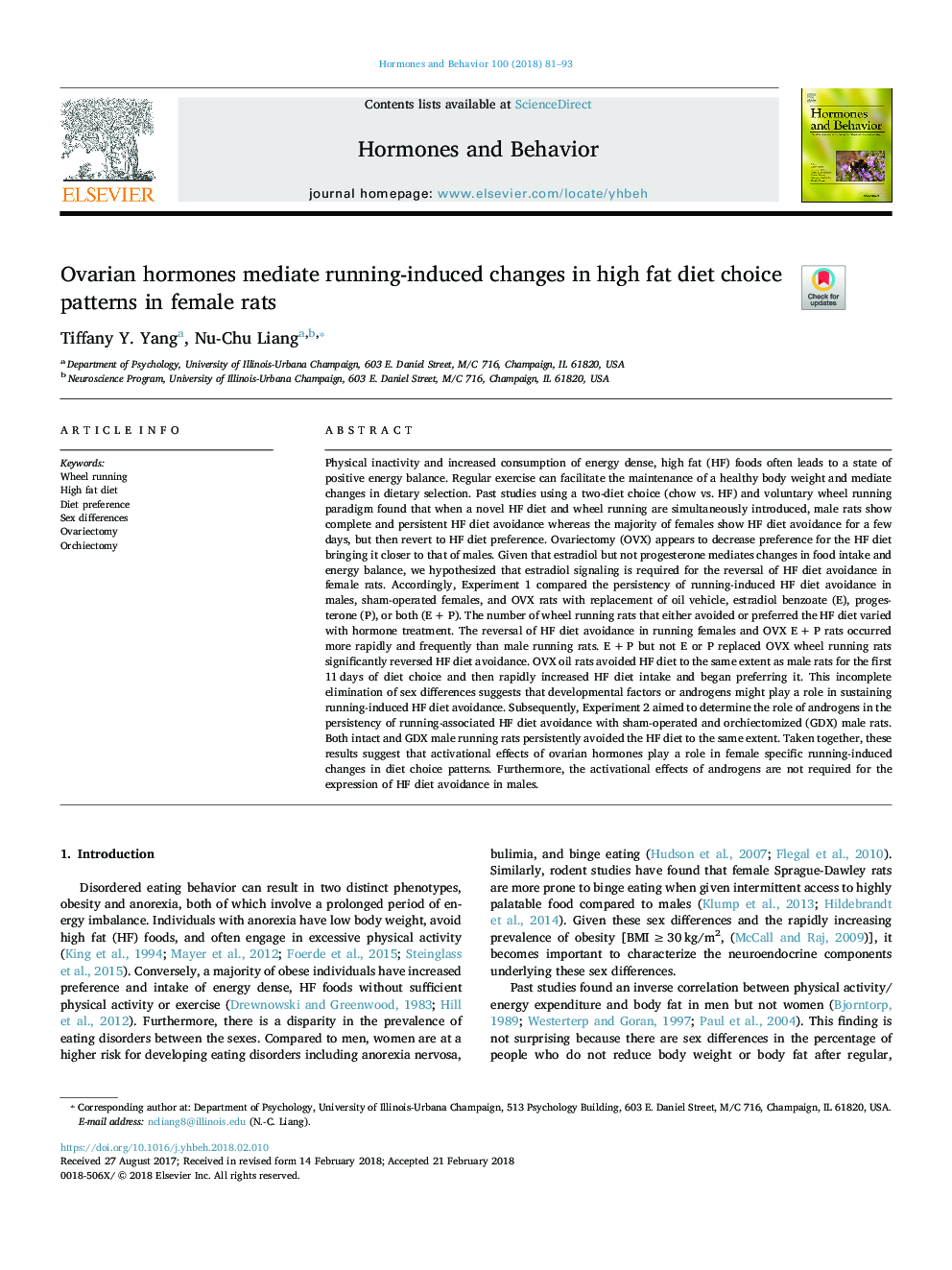| Article ID | Journal | Published Year | Pages | File Type |
|---|---|---|---|---|
| 6793913 | Hormones and Behavior | 2018 | 13 Pages |
Abstract
Physical inactivity and increased consumption of energy dense, high fat (HF) foods often leads to a state of positive energy balance. Regular exercise can facilitate the maintenance of a healthy body weight and mediate changes in dietary selection. Past studies using a two-diet choice (chow vs. HF) and voluntary wheel running paradigm found that when a novel HF diet and wheel running are simultaneously introduced, male rats show complete and persistent HF diet avoidance whereas the majority of females show HF diet avoidance for a few days, but then revert to HF diet preference. Ovariectomy (OVX) appears to decrease preference for the HF diet bringing it closer to that of males. Given that estradiol but not progesterone mediates changes in food intake and energy balance, we hypothesized that estradiol signaling is required for the reversal of HF diet avoidance in female rats. Accordingly, Experiment 1 compared the persistency of running-induced HF diet avoidance in males, sham-operated females, and OVX rats with replacement of oil vehicle, estradiol benzoate (E), progesterone (P), or both (Eâ¯+â¯P). The number of wheel running rats that either avoided or preferred the HF diet varied with hormone treatment. The reversal of HF diet avoidance in running females and OVX Eâ¯+â¯P rats occurred more rapidly and frequently than male running rats. Eâ¯+â¯P but not E or P replaced OVX wheel running rats significantly reversed HF diet avoidance. OVX oil rats avoided HF diet to the same extent as male rats for the first 11â¯days of diet choice and then rapidly increased HF diet intake and began preferring it. This incomplete elimination of sex differences suggests that developmental factors or androgens might play a role in sustaining running-induced HF diet avoidance. Subsequently, Experiment 2 aimed to determine the role of androgens in the persistency of running-associated HF diet avoidance with sham-operated and orchiectomized (GDX) male rats. Both intact and GDX male running rats persistently avoided the HF diet to the same extent. Taken together, these results suggest that activational effects of ovarian hormones play a role in female specific running-induced changes in diet choice patterns. Furthermore, the activational effects of androgens are not required for the expression of HF diet avoidance in males.
Related Topics
Life Sciences
Biochemistry, Genetics and Molecular Biology
Endocrinology
Authors
Tiffany Y. Yang, Nu-Chu Liang,
